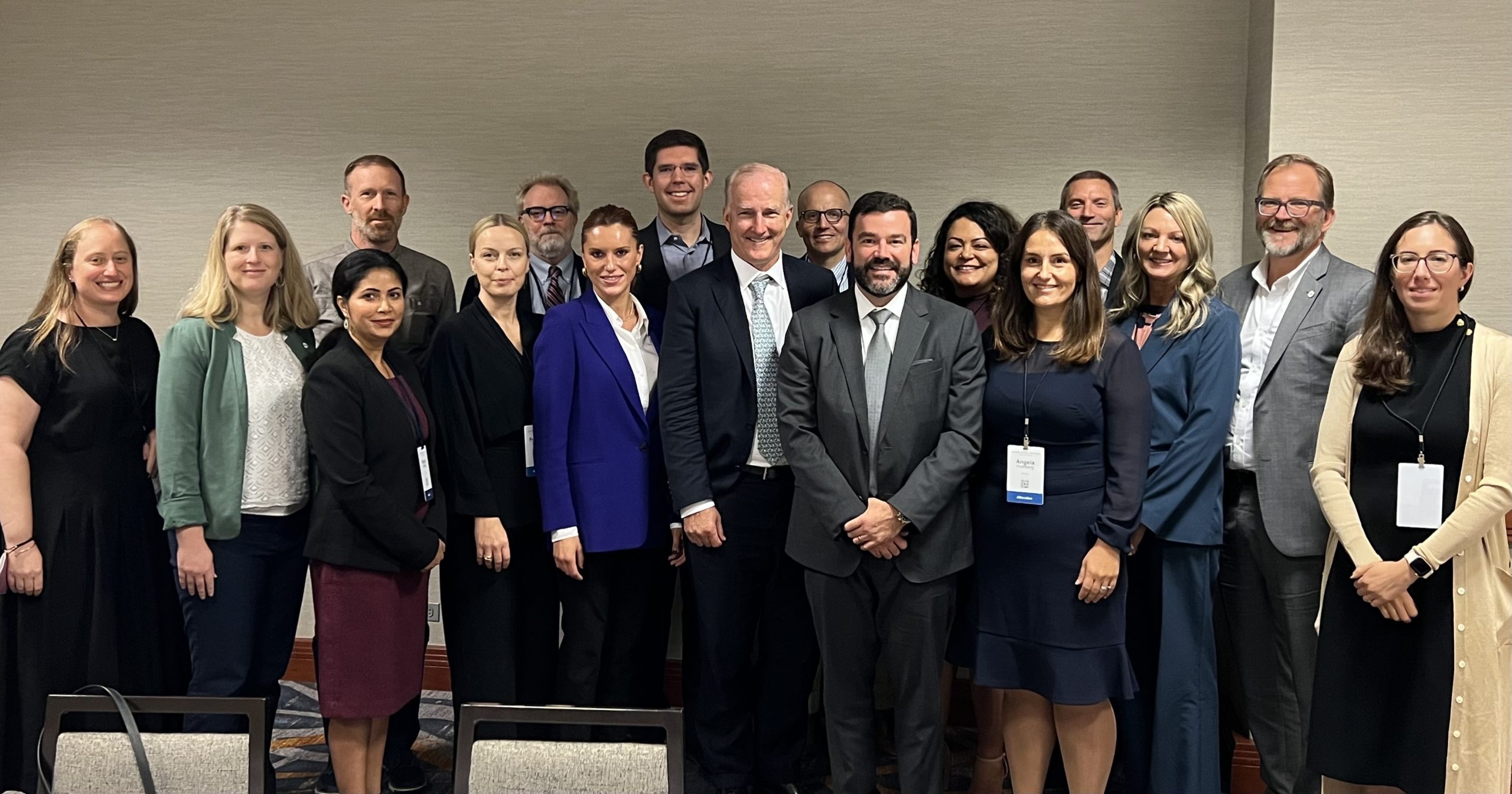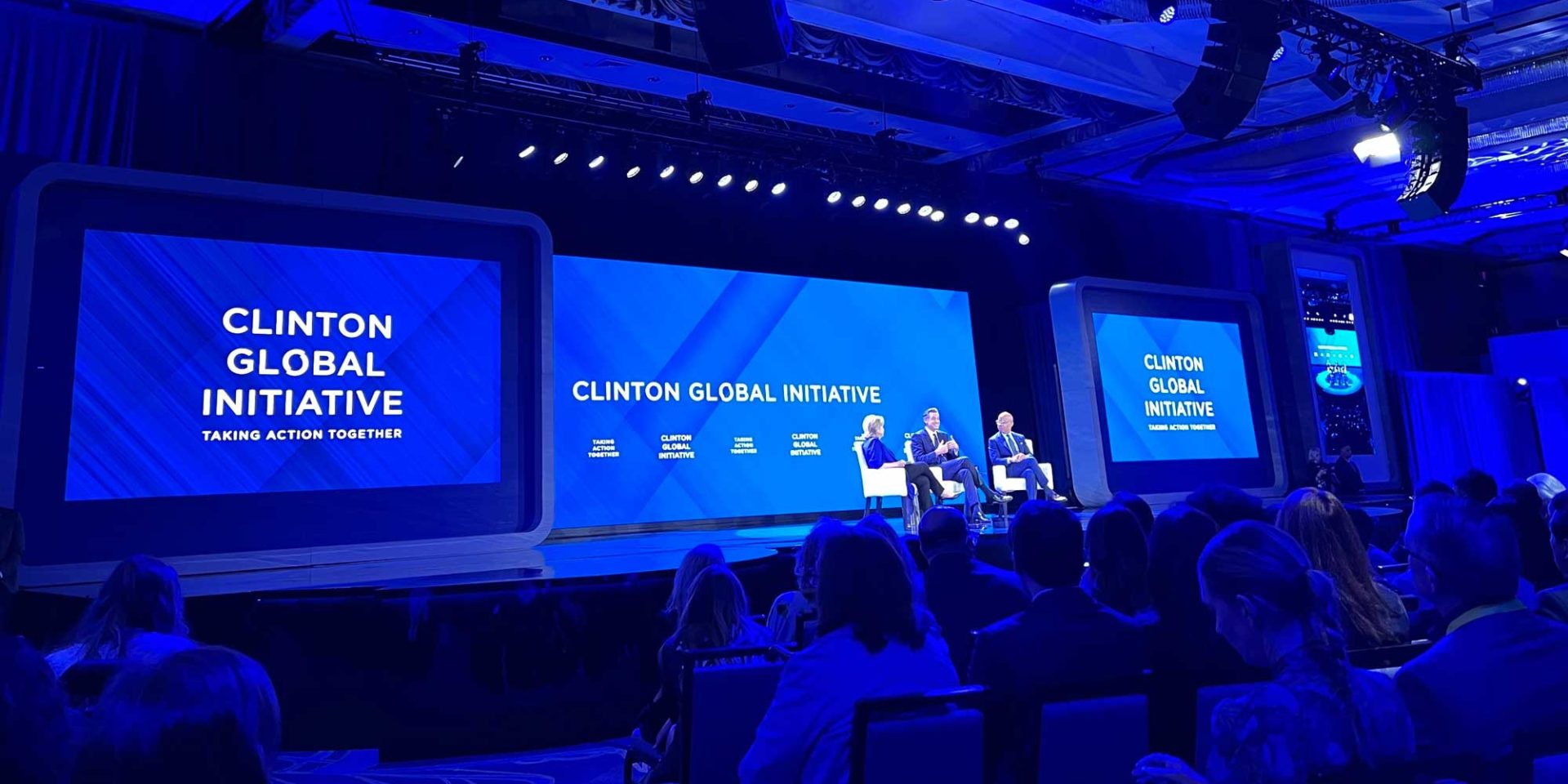5 Key Insights from Climate Week 2023
September 2023

Climate Week 2023, the highly anticipated annual gathering is billed to be the largest event of its kind.
These annual events take place every year in partnership with the United Nations General Assembly and are run in coordination with the United Nations and the City of New York. With the participation of influential business leaders, government representatives, societal influencers, and members of the climate sector.
We had the privilege of attending this year and Carla Detrieux, Volta Trucks’ Director of Business Development, shares the five key takeaways we gathered.

1. Impact over intent
Perhaps the most critical takeaway, is that good intentions are no longer good enough. The stakes are too high, and the window of opportunity too narrow.
It’s no longer a question of ‘what’ we aim to achieve but ‘how’ we are translating these objectives into tangible positive results. The whole week, stakeholders overwhelmingly emphasized this perspective.
Reducing greenhouse gas emissions needs to focus on generating real-world impacts that are both measurable and meaningful. We desperately need all organisations to be accountable and incentivised to deliver on their ambitions.
California Governor Gavin Newsom made the most of this symbolic week to announce that he plans to sign two new landmark climate-related disclosure bills into law, which will require most large companies in the U.S. that operate in California to disclose their full value chain emissions, as well as requiring companies to report on their climate-related financial risks and adaptation measures.
2. Need for public and private sectors to unite
Governments can further accelerate the growth of renewables by addressing key barriers. These include permitting, grid integration, social challenges, inconsistent policy approaches, and levelling the playing field for green energy by addressing the hidden (environmental and health) costs of fossil fuels. High financing costs are also a major obstacle.
However, governments will not come up with the perfect solution and need input from practitioners both on the supply and demand side of the spectrum. The ‘doers’ perspective is extremely important to design the right policies and incentives programmes.
It is important to note that, this isn’t about ‘who will win’ commercially, it is about working together, as a whole industry, hand-in-hand with governments, for the greater good.

3. The development of renewable energy and energy efficiency is the new currency
Stronger policies and raised climate goals leading into COP28 are driving renewables, but faster deployment across all key sectors is needed to reach net zero.
Green energy, efficiency, diesel bans and multi-billion-dollar projects are critical; but we shouldn’t wait to get all these boxes ticked to be confident.
Let’s start now and learn. “Action-Learning” should be our model across the board. We should ensure that we share intelligence, learnings and resources across countries and sectors.
“Everybody is back to start-up stage, and we need to learn together as we face challenges along the way. Innovation wouldn’t be innovation if it was perfect. I was inspired by ex-President of Costa Rica Jose Maria Figueres, a true trailblazer and advocate for decarbonisation and prosperity. Costa Rica’s largest source of energy is hydroelectricity, other sources include wind power, solar power, geothermal energy and biomass.”
4. From leap of faith to assured action
Connecting with stakeholders, from passionate drivers of the transportation industry to ambitious Government officials, all the way to international thought leaders from Microsoft or DB Schenker leading the charge, we are all building confidence that the shift is happening. Last week, an important takeaway was the pressing need to build alliances on both sides of the spectrum: supply and demand. And aggregate these two, to accelerate economies of scale.
“It gives me hope and it drives me to accelerate because everybody is saying the exact same thing. No one wants to keep seeing lives taken away because of air pollution. But decarbonisation will become “business as usual” as long as it is commercially viable, as long as the value chain commits to sharing the investment and as long as everybody is willing to learn from the challenges we encounter on the way. Again, innovation wouldn’t be innovation if it was perfect. It all starts with a forceful mindset and tight partnerships all through the value chain.”
Caution and anxieties around a systemic shift are natural. Humanity has always been frightened of ‘change,’ because we don’t know what is on the other side. And we navigate in a thin-margin industry that’s highly pressured by this transition and the recent upheavals. But as John Kerry, ex-US Military and Special Presidential Envoy for Climate, said last week: “It is our chance to create the greatest marketplace since the Industrial Revolution.”
5. The imperative of inclusivity
Climate change disproportionately affects small businesses and exacerbates existing social injustices, whether they be based on ethnicity, socio-economic status, or geography.
Let’s remind ourselves that we are trying to solve a global climate crisis. Global is the key word here.
This crisis is impacting every single individual and all species on our planet. We know that transportation plays a major role in this environmental impact, and we must act now, globally.
From a business perspective, transportation is a highly fragmented industry, with an extensive chain of stakeholders including a vast majority of SMEs at the bottom of the chain. Without these smaller or medium-sized companies, we cannot reach our objectives. We must involve them.
How do we roll out an inclusive solution that is financially viable for small and medium-sized businesses? How do we work collaboratively with utilities, financing, charging infrastructure, real estate promoters and others to lift all the operational barriers?
Focus and accountability are needed to get all these players together and will result in concrete models that work financially and operationally. With Truck as a Service, we can remove these barriers and make electrification inclusive. But there is still so much we can do to establish decarbonisation as the top competitive advantage and shift from ‘cost’ to ‘value’.

